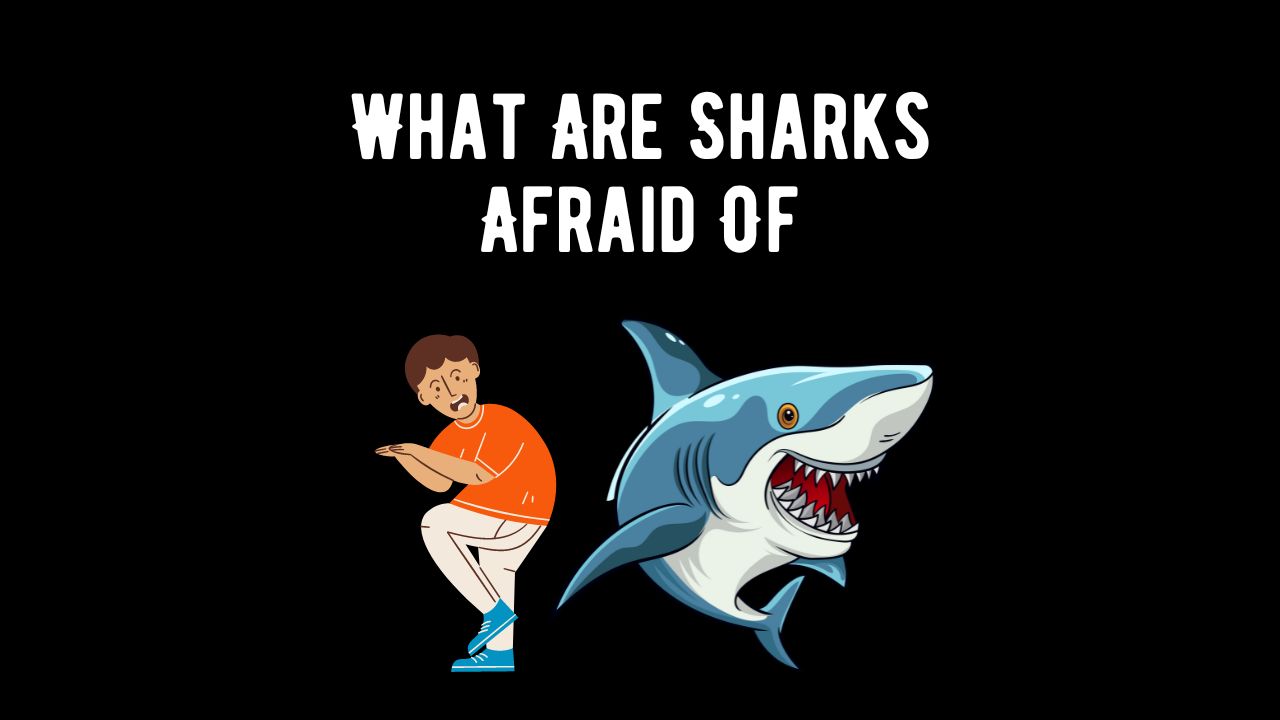
The idea that sharks are afraid of specific entities, such as dolphins, killer whales, or humans, needs to be clarified. Sharks don’t experience fear in the way humans or some mammals do, as their behavior is primarily driven by instinct and environmental cues. However, certain interactions and stimuli may influence how sharks respond in their natural environment. Let’s break down these points:
10 Things Sharks are afraid of include
1. Dolphins:
- There are observations of dolphins exhibiting aggressive or defensive behavior towards sharks in certain situations. Dolphins are known to form groups and occasionally mob or head-butt sharks, especially if they perceive a threat to their pod or territory. This behavior might deter sharks from entering areas with a high dolphin presence.
2. Killer Whales (Orcas):
- Orcas are apex predators known to prey on sharks. There have been documented cases of orcas targeting sharks, particularly for their energy-rich liver. The presence of orcas in an area might influence the behavior of sharks, causing them to alter their movements or avoid certain locations.
3. Humans:
- Sharks do not fear humans in the way that fear is commonly understood. However, certain human activities or stimuli can elicit defensive or cautious responses from sharks. For example, excessive noise, sudden movements, or disturbances in the water caused by human activities may cause sharks to alter their behavior. It’s crucial to note that shark attacks on humans are extremely rare, and most shark species are not considered a threat to humans.
4. Large Predatory Sharks:
- While sharks are apex predators, certain larger predatory sharks, such as the great white shark, may exhibit territorial behavior or avoid confrontations with other formidable individuals. Dominance and competition for resources can influence the behavior of individual sharks.
5. Unfamiliar Objects or Sounds:
- Sharks are sensitive to changes in their environment. Unfamiliar objects, sounds, or disturbances can trigger a cautious response. For example, underwater equipment, strange vibrations, or loud noises might prompt sharks to investigate or avoid an area.
6. Human Activities:
- Sharks can be wary of human activities, especially those that involve excessive noise, sudden movements, or disturbances in the water. Boats, submarines, and other human-related activities can elicit a response from sharks, causing them to alter their behavior.
7. Strong Water Currents or Turbulence:
- Sharks, like other marine creatures, may avoid areas with strong water currents or turbulence. These conditions can make navigation challenging and impact their ability to hunt or maintain their position in the water.
8. Sudden Bright Lights:
- Some studies suggest that certain shark species might be sensitive to bright lights. Sudden exposure to intense light, especially in low-light conditions, might startle or deter sharks.
9. Electric Fields:
- Sharks possess specialized electroreceptor organs called the ampullae of Lorenzini, allowing them to detect weak electric fields. Unusually strong electric fields or electronic signals might cause discomfort or avoidance behavior in sharks.
10. Chemical Signals:
- Chemical cues in the water, such as those associated with injured or distressed prey, can attract sharks. Conversely, certain chemicals or substances may deter sharks, influencing their movements and behavior.
11. Aggressive or Defensive Behavior from Other Marine Creatures:
- Sharks may respond to aggressive or defensive behavior from other marine creatures. Interactions with territorial fish, seals, or other species can influence the behavior of sharks in a particular area.
12. Changes in Water Temperature or Salinity:
- Sharks are adapted to specific environmental conditions. Drastic changes in water temperature or salinity can affect their physiology and behavior, prompting them to seek more suitable conditions.
Summary
It’s important to note that while sharks are powerful and capable predators, they are not invincible, and a complex interplay of ecological factors influences their behavior. While it might be tempting to attribute human emotions like fear to sharks, it’s more accurate to understand their responses as adaptive behaviors shaped by millions of years of evolution in dynamic marine ecosystems.
While it’s accurate to say that these factors may influence shark behavior, attributing human emotions like fear to sharks can be misleading. Shark behavior is shaped by environmental cues, instinct, and evolutionary adaptations. Understanding these dynamics is essential for promoting coexistence and dispelling myths about sharks as creatures to be feared.






